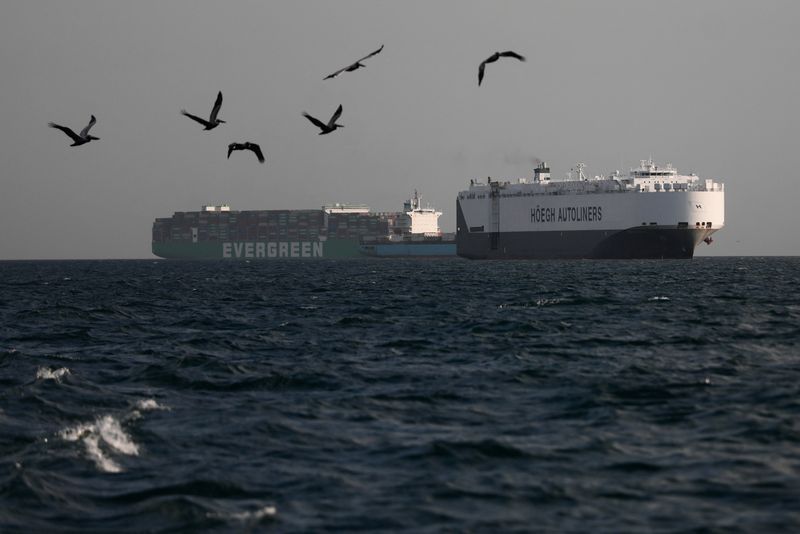By Elida Moreno
PANAMA CITY (Reuters) - The Panama Canal sees no need for further vessel transit restrictions until at least April, when its authority will evaluate water levels at the end of the dry season, Deputy Administrator Ilya Espino told Reuters.
A severe drought last year forced the canal to reduce the number of vessels allowed to pass per day. In December, rains in the last quarter of the year allowed the waterway to suspend further restrictions that would have been applied in January.
In recent months, attacks to ships at the Red Sea have prompted many vessel owners to take longer routes to and from Asia, increasing demand for transit through Panama, Espino said.
"At least until April, we will maintain 24" authorized transits per day, she said in an interview late on Tuesday.
If rains arrive in May as expected, the canal plans to progressively increase daily slots, aiming to return to about 36 vessels per day, its normal number during the rainy season. If rains are short of expectations, the authority could apply further restrictions to either daily passage or draft, a vessel's maximum depth.
"If rainfall does not begin in May, we would evaluate again whether to cut transit by one or two vessels per day, or to reduce maximum vessel draft to 43 feet," she added. The authority is also monitoring evaporation at water reservoirs during the dry season.
The canal currently allows vessels with a maximum draft of 44 feet. The Panama Canal Authority has avoided cutting that number because it would force many ships to reduce their loads, making transport of some products unprofitable.
Container ships have priority to pass through Panama, but the transit restrictions since last year have hit other categories, especially bulk carriers.
The need to preserve water levels at reservoirs feeding the canal has stopped it from absorbing incremental demand emerging from the Red Sea, where the attacks have hindered ships trying to pass through the Suez Canal, the world's busiest waterway, Espino said.
"Due to problems at the Red Sea, many people forced to take alternative routes have tried to resort to Panama, but it has not been possible," she said, adding bulk carriers have been hit hardest.

Espino said increased demand for U.S. liquefied natural gas (LNG) in Europe has reduced the need for LNG vessels to pass through Panama since 2022, but that situation could change if U.S. exporters have price incentives to ship to Asia.
Due to the transit restrictions, the Panama Canal Authority has forecast a reduction of up to $700 million in toll revenues for the current fiscal year ending in September. In 2024, the canal might miss a total 1,500 vessels that would pass through in normal conditions, Espino said.